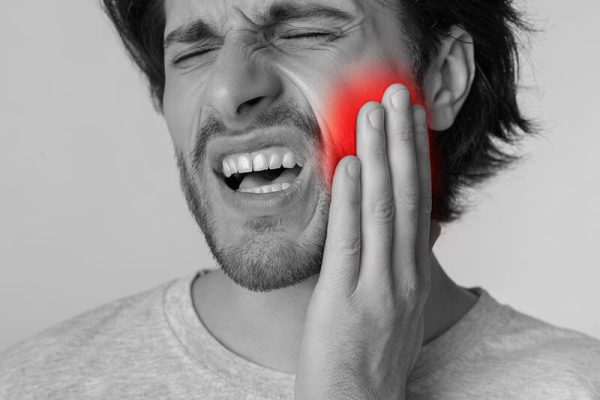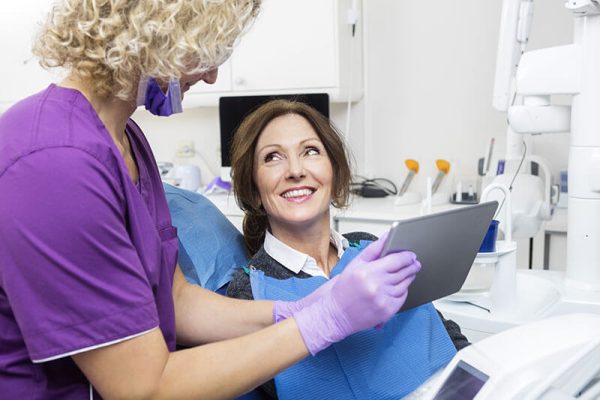Handling Dental Trauma Before Visiting a Dentist
Accidents happen, and dental emergencies can occur unexpectedly, causing pain and distress. Knowing how to handle dental trauma promptly and appropriately can make a significant difference in preventing further complications.
Dr. Dawson is one of the best dentists in Wasilla for emergency dentistry, but it’s wise to be prepared for a situation before being able to see a dentist.

What Is Dental Trauma?
Dental trauma refers to injuries that affect the teeth, gums, lips, tongue, or surrounding tissues due to various causes such as accidents, sports-related incidents, or falls. These injuries can vary in severity, ranging from mild chipping to complete tooth avulsion.
Recognizing Dental Injuries
The first step in providing first aid for dental injuries is recognizing them promptly. Here are some common signs and symptoms of dental trauma:
- Fractured or Chipped Teeth: Visible cracks, chips, or fractures in the teeth.
- Tooth Displacement: Misaligned or moved teeth from their original position.
- Tooth Avulsion: Complete knocking out of a tooth from its socket.
- Injuries to Soft Tissues: Cuts, lacerations, or puncture wounds to the lips, tongue, or cheeks.
- Tooth Sensitivity: Increased sensitivity to hot or cold temperatures in affected teeth.
Immediate Actions for Dental Injuries
When faced with dental trauma, acting quickly can make a substantial difference in preserving the affected teeth and tissues.
Stay Calm and Reassured
When faced with a dental injury, the first and most crucial step is to stay calm and reassure the injured person. Dental emergencies can be distressing, but maintaining a composed demeanor will help keep the situation under control and reduce anxiety.
Control Bleeding
If there’s any bleeding from the injured area, it’s essential to control the bleeding promptly. Apply pressure with a clean cloth or gauze to the affected area to staunch the bleeding. This will help manage the injury and make it easier to assess the extent of the damage.
Recover Tooth Fragments
In the case of a broken tooth, try to locate and collect any tooth fragments. These fragments may be valuable for potential reattachment by a dentist. Handle them carefully and keep them in a moist environment, such as a tooth preservation kit, milk, or saline solution.
Handle Avulsed Tooth Carefully
If a tooth is completely knocked out (avulsed), it’s essential to handle the tooth with care. Hold the tooth by its crown (the top part) and avoid touching the root. Touching the root can damage the delicate tissues that are crucial for reattachment.
Rinse With Saline Solution
If the avulsed tooth is dirty, it’s essential to rinse it briefly with a saline solution or milk. Avoid using water, as it can harm the root surface cells. Gently rinse the tooth without scrubbing to maintain its viability for potential reimplantation.
Contact Dr. Dawson
After taking immediate action for dental injuries, seek professional dental care from Northwind Dental as soon as possible. Dental emergencies require prompt evaluation and treatment by an emergency dentist or a dental trauma specialist. Contact your dental clinic or visit the nearest emergency dental facility for appropriate care. Remember, swift action can make a significant difference in preserving teeth and tissues during dental emergencies.

Dental First Aid Kit Essentials
Having a well-equipped dental first aid kit at home or while traveling can prove invaluable during dental emergencies. Here are some essential items to include in your kit:
- Gauze or Clean Cloth
- Saline Solution
- Pain Relievers (Ibuprofen)
- Cold Compress
- Cotton Swabs
- Dental Floss
How to Manage Dental Pain
Dental injuries can cause significant pain and discomfort. Managing dental pain effectively may include:
- Over-the-Counter Pain Relievers: Use pain relievers like ibuprofen or acetaminophen as directed.
- Cold Compresses: Apply a cold compress to the affected area to reduce swelling and alleviate pain.
- Avoid Hot and Cold Foods: Temporarily avoid consuming extremely hot or cold foods and beverages.
- Soft Diet: Stick to a soft diet that doesn’t require excessive chewing.
- Avoid Pressure: Refrain from putting pressure on the injured tooth or surrounding area.
Frequently Asked Questions
In most cases, you have the best chance of saving a lost tooth if you act promptly within the first hour of the injury. Time is critical in preserving the tooth’s viability for reattachment. If an avulsed tooth is left out of the mouth for an extended period, the chances of successful reimplantation decrease significantly.
No, using glue or any household adhesive to fix a broken tooth isn’t recommended. Household adhesives are not designed for dental use and may contain harmful chemicals. Instead, if you experience a broken tooth, try to collect any tooth fragments and store them in a moist environment like milk or saline solution.
If your child knocks out a baby tooth prematurely, don’t attempt to reinsert it. This is normal and usually not an emergency. Baby teeth naturally fall out to make way for permanent teeth. Have your child checked by a dentist to ensure no further damage has occurred and to ensure proper oral health during the transition to permanent teeth.
For dental injuries, it’s best to seek immediate care. Dental emergencies can be painful and may lead to further complications if left untreated. Waiting until regular office hours may delay treatment, causing the condition to worsen. In case of a dental emergency, contact an emergency dentist or visit the nearest dental clinic for prompt evaluation and treatment.
Dental Emergency? We’re the First to Call
Handling dental trauma effectively requires swift action, preparation, and professional help. By being aware of the necessary first aid measures and seeking timely dental care, you can minimize the impact of dental injuries and improve the chances of successful recovery.
During times of emergencies, Northwind Dental is here for you. Dr. Dawson welcomes you to contact our Wasilla dental office right away at (907) 373-2440 so we can help get you the prompt dental care you need.
